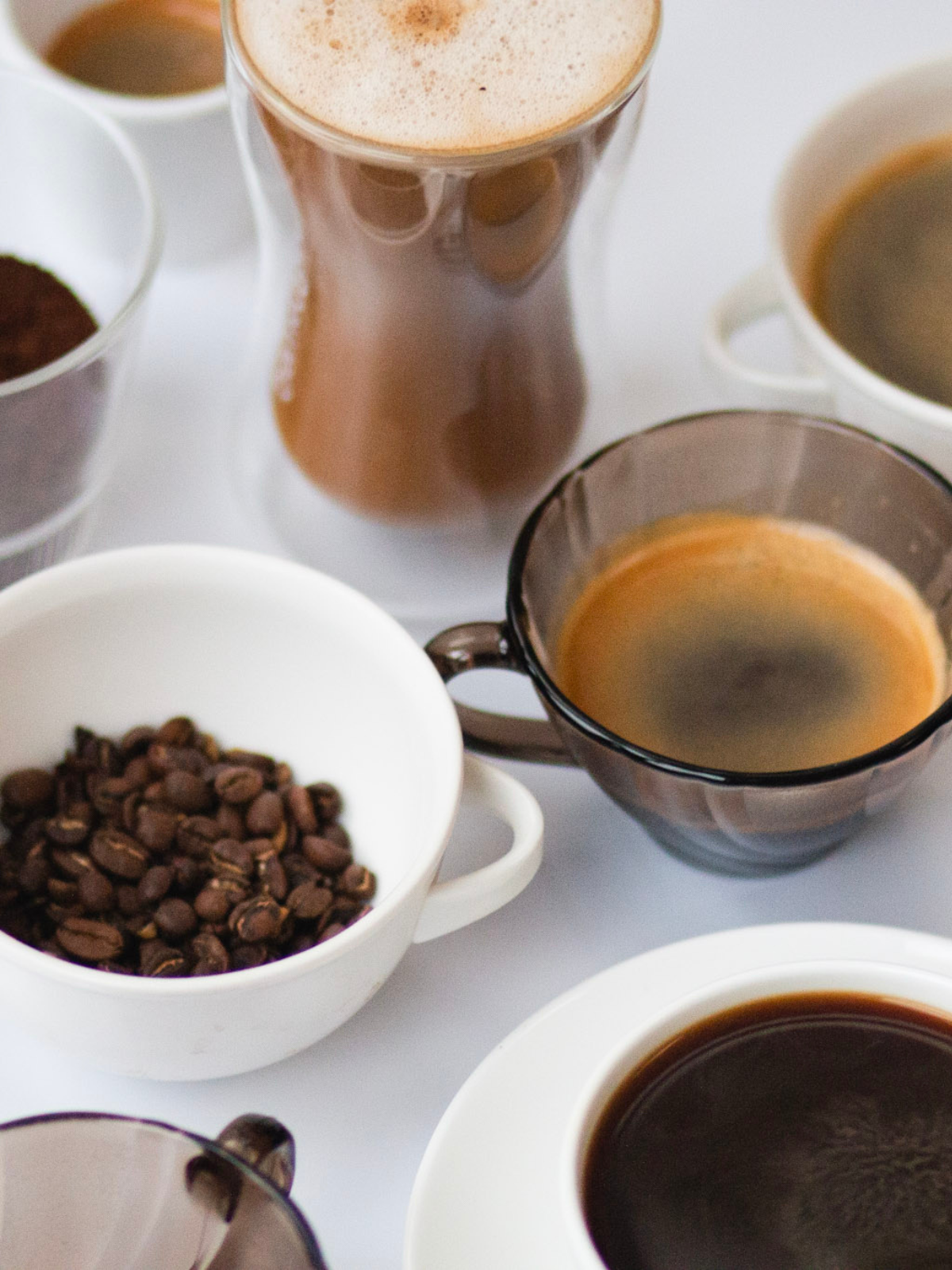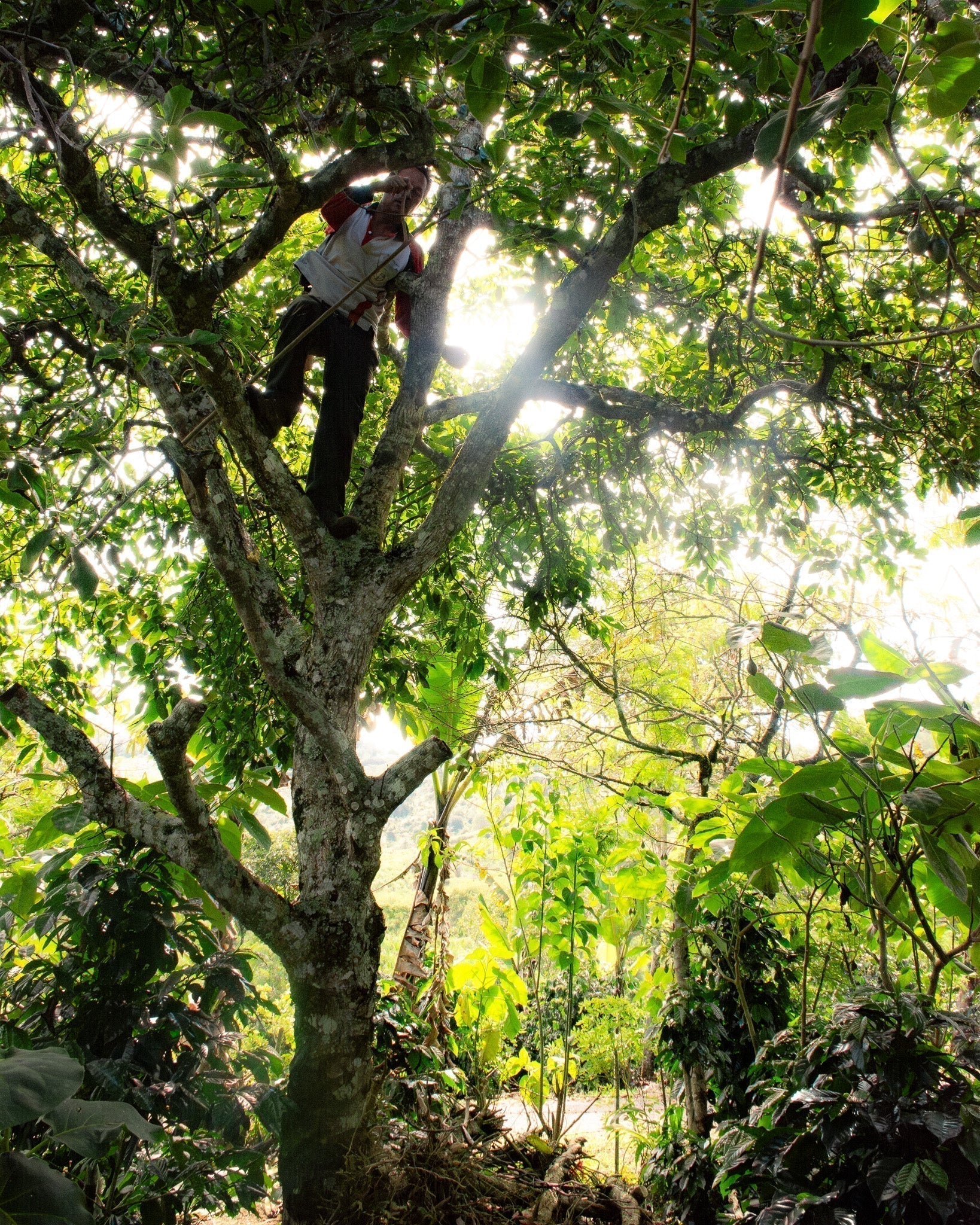
10 Questions you've always wanted to ask a Coffee Roaster
We teamed up with Ante Bikic, our Head Roaster at Amokka since 2019, to ask him some of the most common questions we get about coffee. With a calm, technical focus, he draws on nearly 20 years of experience in roasting, barista training, and judging. In 2020, he won the Danish Coffee Roasting Championship. Here’s what he had to say.

Amokka Head Roaster Ante Bikic answers your most commonly asked questions.
1. Is darker coffee stronger than a light roast?
People often think darker roasts are stronger, but strength in coffee is actually not about roast level. Darker roasts taste more bitter and is perceived as strong, but caffeine is usually the same or slightly less than in lighter roast. Lighter roast tastes brighter, more acidity, and you taste more clearly where coffee is from. Darker roast has more roasted flavor, chocolate or caramel, less acidity. Both can be strong or mild depending on how you brew it.
2. Why does coffee taste fruity?
Our coffees are never artificially flavoured. Fruitiness in coffee comes naturally from the bean itself because of where and how it grows, and especially how it is processed after picking. For example, natural processed coffee dries with the fruit still on the bean, which makes a very fruity, sometimes funky flavour. If you taste fruit, it means we did a good job roasting, and the farmer did a good job processing.
The roast level often dictates how the beans are brewed.
3. What’s the difference between espresso and filter coffee beans?
All beans can technically be used for both, but the difference is mostly in roasting. We actually don't make the distinction, we rather offer recommendations on brewing methods! What is referred to as Espresso roasts are usually a bit darker and more developed, filter coffee roasts are usually lighter and more delicate. Beans themselves aren't different, just how its roasted and how you brew it.
4. How long should I wait after roasting before brewing?
Usually, it's best to wait at least one week after roasting. Fresh roasted coffee has a lot of gas (CO₂), and if you brew too soon, coffee tastes uneven or even sour, especially espresso. For filter, sometimes 3 to 7 days is fine. Lighter roasts are often best after 3 weeks. We wrote about resting coffee, it’s an important step for better taste.

Quality is assessed in what's known as a "cupping".
5. How do you decide when a coffee is ready to be released?
First, we roast samples several ways. Then we cup (taste) many times, comparing roast levels and profiles. It takes time, usually a few weeks or even months, before we agree on the final profile. We discuss taste, balance, sweetness, and clarity. When we find best profile that clearly shows character of coffee and is easy to brew, we release it. It’s careful process, we never rush it.
6. Can you actually taste the difference between washed, natural, and honey processed coffees?
Yes, you can definitely taste the difference. Washed coffee tastes cleaner, more balanced, brighter acidity. Natural coffee tastes fruity, sometimes funky, with a fuller body, sweeter. Honey processing is something in the middle, a bit of fruitiness, more sweetness than washed. You don’t need to be an expert, differences are clear once you try them side by side.

Ante visiting Leku, Sidama, one of the origins we work with.
7. Is single origin always better than a blend?
No, single origin is not always better. Single origin just means coffee comes from one place, and you taste exactly that place. Blends are thoughtfully combined to get a balanced flavour. A good blend gives you something that one origin can’t achieve alone, better sweetness, smoothness, or more complexity. We roast both, because they serve different purposes.
8. Why do some coffees taste more acidic or “bright”? Is that a good thing?
Acidity in coffee can be very good. It is natural part of coffee, especially high quality beans grown in high altitude. Acidity doesn’t mean sour, it can be fruity, juicy, refreshing like biting into fresh fruit. Brightness shows coffee is fresh and good quality. If coffee has no acidity, it usually tastes flat and dull.
Altitude and processing can affect the acidity.
9. How does seasonality affect what coffees you roast?
Coffee is seasonal product, each country has different harvest time. This means we have fresh coffee arriving throughout year, and we adjust our offering accordingly. When coffee gets old, flavor fades, less clear and vibrant. That’s why we buy coffee seasonally, keep freshness and quality high. Sometimes coffee disappears from menu, it just means we wait for next fresh harvest.
10. What’s one thing most people misunderstand about speciality coffee?
The biggest misunderstanding is probably about price. Specialty coffee costs more, not just because it tastes better, but because there is a lot of extra work and care behind it. Farmers do more work, pick cherries by hand, carefully sort and process beans, and we roast with care. Coffee is not a simple product. Behind every good coffee there are many hours of work, knowledge, and skill. That’s why speciality coffee is worth more.






Leave a comment
This site is protected by hCaptcha and the hCaptcha Privacy Policy and Terms of Service apply.